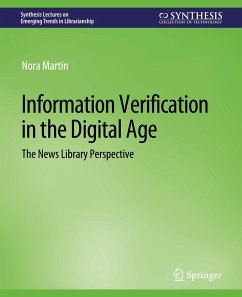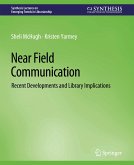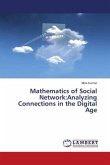This book will contemplate the nature of our participatory digital media culture, the diversity of actors involved, and how the role of the news librarian has evolved-from information gatekeeper to knowledge networker, collaborating and facilitating content creation with print and broadcast media professionals. It will explore how information professionals assist in the newsroom, drawing on the author's experiential knowledge as an embedded research librarian in the media industry. The past decade has seen significant changes in the media landscape. Large media outlets have traditionally controlled news and information flows, with everyone obtaining news via these dominant channels. In the digital world, the nature of what constitutes news has changed in fundamental ways. Social media and technologies such as crowdsourcing now play a pivotal role in how broadcast media connects and engages with their audiences.
The book will focus on news reporting in the age of social media, examining the significance of verification and evaluating social media content from a journalistic and Information Science (IS) perspective. With such an emphasis on using social media for research, it is imperative to have mechanisms in place to make sure that information is authoritative before passing it on to a client as correct and accurate. Technology innovation and the 24/7 news cycle are driving forces compelling information professionals and journalists alike to adapt and learn new skills. The shift to tablets and smartphones for communication, news, and entertainment has dramatically changed the library and media landscape. Finally, we will consider automated journalism and examine future roles for news library professionals in the age of digital social media.
The book will focus on news reporting in the age of social media, examining the significance of verification and evaluating social media content from a journalistic and Information Science (IS) perspective. With such an emphasis on using social media for research, it is imperative to have mechanisms in place to make sure that information is authoritative before passing it on to a client as correct and accurate. Technology innovation and the 24/7 news cycle are driving forces compelling information professionals and journalists alike to adapt and learn new skills. The shift to tablets and smartphones for communication, news, and entertainment has dramatically changed the library and media landscape. Finally, we will consider automated journalism and examine future roles for news library professionals in the age of digital social media.








